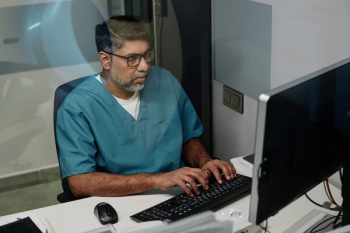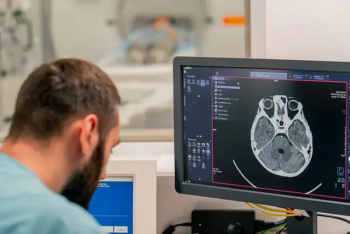
Are You Seeing Tasks Through to Completion?
If more people followed through, we'd all spend less time following-up.
I can’t say for sure that I never heard the phrase “follow up” prior to medschool. I can say I heard it a whole lot more once I started prowling the corridors of various healthcare facilities.
Not a fan of it. That might be because the phrase is overused (an awful lot of people in healthcare seem to use it in lieu of critical thinking), or because, in our dysfunctional system, we wind up spending so much of our time doing, well, follow-up stuff. Indeed, it seemed to constitute most, if not all, of my working hours as a student doing my clinical clerkships, and then as an intern.
Some follow-up, lest it need saying, is reasonable and necessary. The Flesichner Society’s guidelines for following pulmonary nodules, for instance, weren’t just thrown together, evidence-free, on a random whim one Tuesday afternoon. He who disregards all subcentimeter pulmonary lesions will, sooner or later, find out the hard way why such behavior is far from the standard of care. That kind of follow-up, as tedious and intellectually unstimulating as it may be, is not my vexation.
The follow-up that does rankle me is that which occurs because others might not, or have not, followed through. The simplest and most commonplace example that leaps to my mind is phoning someone a second time (or more) after they were supposed to have called back.
I’ve experienced this with inexplicable frequency ever since moving into my new house, three years ago. Readers of this column might recall that more than a couple of things have needed fixing, replacing, etc. Now, maybe it’s just that I didn’t need so much work done in my old pad, but my recollection is that, when I rang up my plumber, electrician, contractor, whatever, they wanted the work, and made arrangements to show up. Or at least rang me back to let me know when I might expect them. Not so much the case in the past three years-sometimes it feels like I have to drag them, kicking and screaming, to come and take my money.
“Follow-through,” when I first encountered it, referred to various types of athletic activity, wherein your swing of a baseball bat or golf club would continue on even after making contact with the ball. Or the arc of your arm would go beyond the point at which you released the ball you were throwing. The value of doing this, rather than ceasing all effort the moment you have interacted with your projectile of interest, can be researched elsewhere if the reader desires.
The metaphorical value isn’t hard to see: If you practice follow-through in your endeavors, you see them to completion. In our line of work, that means you don’t just finish your dictation and mindlessly hit the “sign” button. Rather, you proofread your report, and if warranted by your findings, you get ahold of the referring clinician and talk to them about the abnormalities you identified. Or even the patient (such as with the “lay report” letter you’re supposed to send after you read someone’s mammogram). If relevant prior studies become available later, you go ahead and review them, then make an addendum to your report.
The problem is that an awful lot of the other denizens of the healthcare system exercise little or no follow-through, whether out of laziness or ignorance. And, when someone else doesn’t follow through, you wind up having to follow up in compensation for their lapse. Hopefully because you actually give a darn that good patient care is happening. At the very least because you know that, if/when the ball gets fumbled, even if it was clearly The Other Guy’s fault, you stand to be accused of negligence because, well, you’re a doctor.
Give it enough time, and you start to develop what I shall call Following Fatigue (feel free to throw in another F adjective if you like, if it helps you vent). After however many years of being the conscientious one in a sea of others who are less-than, it starts to sink in that, if everyone did their fair share of follow-through, you wouldn’t have to do nearly as much following-up as you are.
Newsletter
Stay at the forefront of radiology with the Diagnostic Imaging newsletter, delivering the latest news, clinical insights, and imaging advancements for today’s radiologists.












